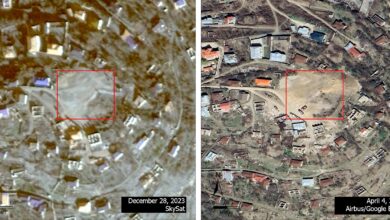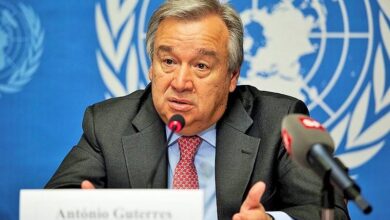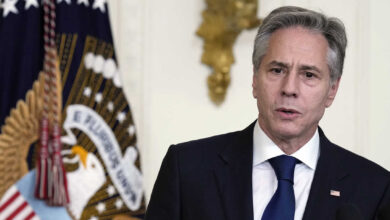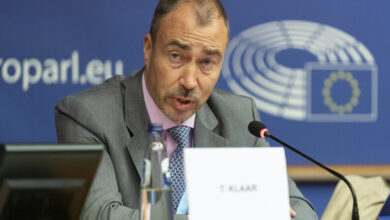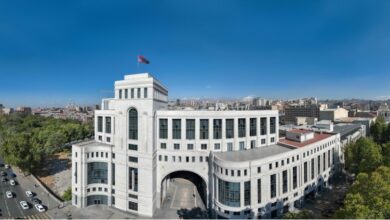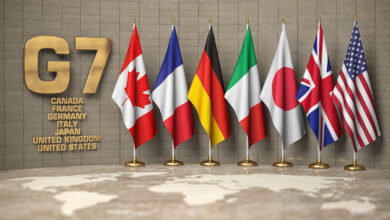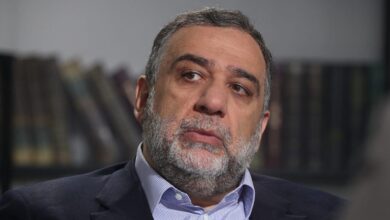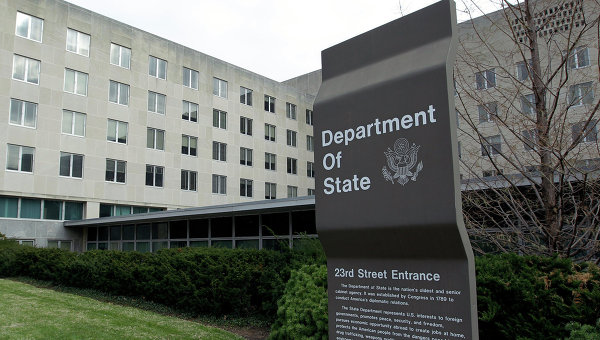Our centennial message is aimed at the prevention of genocide, Armenian President says
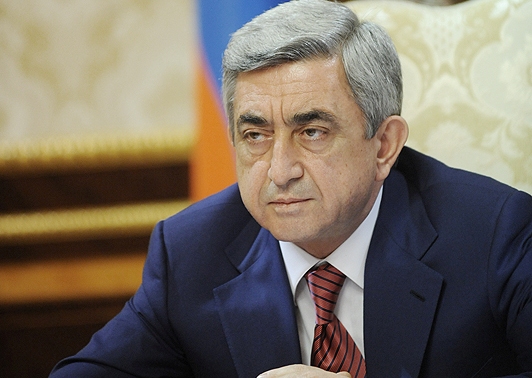
“If the international community had collectively responded to the Armenian genocide, we would have a different twentieth century and probably today we would not be talking about what happens to Christian minorities in the Middle East,” Armenian President Serzh Sargsyan said in an interview with Corriere Della Sera within the framework of his visit to Italy.
Speaking on the threshold of the 100th anniversary of the Armenian Genocide,President Sargsyan said: “Our message on the centenary is aimed at the prevention of genocide. It is a request for political commitment to the entire international community and we have the moral right to do so. The prevention and punishment of such crimes should not be subject to geopolitical interests. The twentieth century is the perfect lesson of what can happen in the absence of what we ask. Unfortunately, I fear that the century of genocide is not finished. In the Middle East, where primary targets are the ethnic and religious minorities, we are seeing the beginning of genocidal action. We have reached a point where it is essential to make a collective effort. ”
“The historical veracity of the Armenian genocide is not disputed, the same Turkish Court Martial in 1919 sentenced the perpetrators of the genocide for crimes against humanity. Even Ankara admits that there have been killings of civilian Armenians. Some states call it genocide, others massacre, others tragedy. As with other countries, the lack of recognition is conditioned by their interests with Turkey,” the Armenian President said.
The relations between Armenia and Italy are undergoing very positive. In the past 4 years, the annual trade exchange is practically doubled, from 127 to 214 million dollars. Asked what he expects in the future,President Sargsyan said: “Our two countries are united by strong interest, but also the sharing of universal values. Our diplomatic relations have a history of only 24 years, but our relations are based on a weaving millennium. In trade relations with Rome we only revive something ancient, dating back to the Middle Ages, when the Italian city-states were operating along the Armenian merchant networks. I trust that it will not be long before you get to another double, thanks to the evolution of our virtuous economic environment in terms of facilities and opportunities for foreign companies. ”
At a time of great tension in the relations between the countries of Western Europe and the Russian Federation, Armenia is an exception. From January Armenia is a member of the Eurasian Economic Union are members along with Russia, Belarus and Kazakhstan. But at the same time Armenia is in an advanced stage of negotiations for an Association Agreement with the EU.
“For decades, the Armenian economy has been closely integrated with those of the countries of the former Soviet Union. Our biggest trading partner is Russia, where most of our exports has a natural market outlet. On the other hand, we are deprived of energy resources, we import oil and gas from the Russian Federation. By joining the Eurasian Union we got very favorable energy prices. It is logical and rational. As for our relations with the European Union, essential is its contribution to the ongoing democratic reforms in our country. The basis of our choices is therefore a combination of interests and values. We are pragmatic. The central point is the frankness with all our partners. As for the model, I can not say today. The time will be the best judge. But one thing is certain: in the future we will come to establish a very close cooperation between the Eurasian Union and the EU. ”
“The basis of our strategic concept of foreign policy is not the contrast, but the cooperation and synergies between the centers of global power. Let me give another example: we are among the founding nations of the Organization of collective security, which includes some countries of the former Soviet Union (CSTO), but also at the same time cooperate with NATO. ”
English translation by Public Radio of Armenia.


